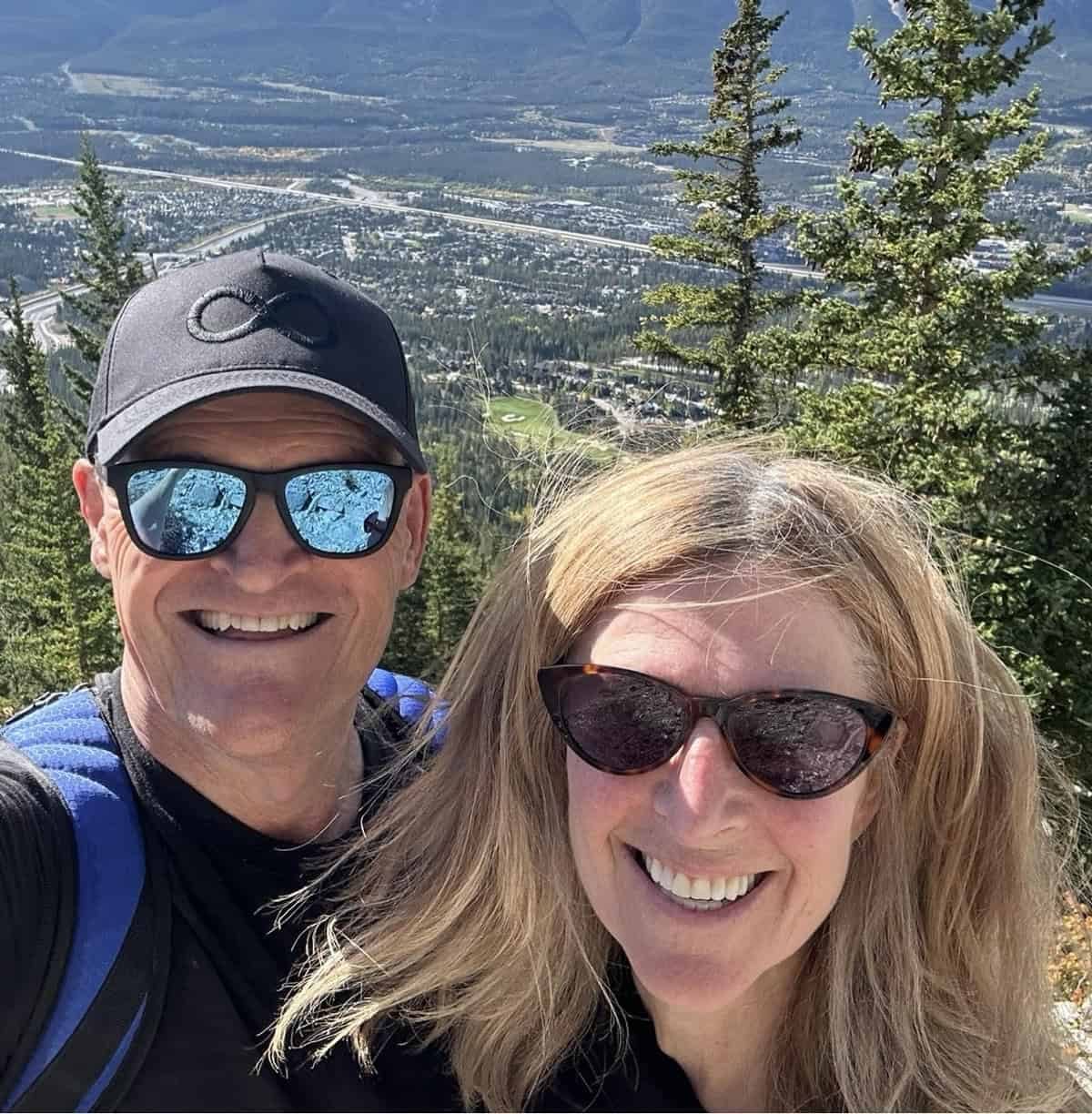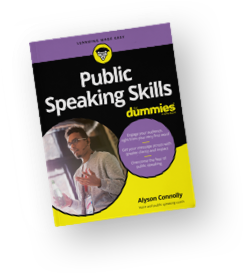I love the changing of seasons. To me, it feels like new beginnings.
Some of you are now giving presentations again, so I thought I’d offer a few
reminders on the ABCs of giving a speech.
A: Adopt a positive attitude
We all process negative thoughts faster than positive. This is a physiological fact
tied to the evolutionary development of our brains and our need to avoid life-
threatening situations back when we were roaming the world as hunters and
gatherers.
And, as it turns out, we hold on to negative thoughts. In Rick Hanson’s book,
Buddha’s Brain he writes: “Your brain is like Velcro for negative experiences and
Teflon for positive ones”. (Rick Hanson the neuropsychologist – not the
Paralympian)
But there is good news! Through neuroplasticity (the ability to rewire our brain)
we can change our minds to think more positively.
Instead of “I’ve never done this before”, switch it too: “This is a great opportunity
to try something new.” This is exactly what I thought every time I woke up at 5:00
am to write Public Speaking for Dummies (published in 2018 and still feels like a
miracle.)
Instead of “I’m not going to get any better than this.” Switch it to “I learn
something every time I present, and I’ll get better.”
Instead of “The other team members know way more than me,” switch it to “I am
the expert on this topic!”
B: Breathe, breathe, breathe!
Yes, we do this to survive, but do we take the time to breathe deeply? When we
are anxious, our body tenses up making us unable to drop our breath into the
lower part of our lungs. Breathing deeply relieves anxiety because it activates
our rest and digest nervous system, which has a calming effect on our body.
I have many breathing exercises that you can incorporate in your warmup, but
the simplest one is this: (and you can do it while you’re walking or driving to the
venue).
Take five deep breaths, inhaling and exhaling a little more fully than usual. As
Rick Hanson writes, “This is both energizing and relaxing…That combination of
aliveness and centeredness is the essence of the peak performance zone
recognized by athletes, businesspeople, artists, lovers and meditators.”
C: Change your perspective
This September my husband and I were in the mountains. We usually go on the
same hike that we’ve done for years. This time we wanted to try somewhere
else. My husband found one that he said, was rated easy. Off we went wearing
just runners and carrying no poles.
But this did not feel like an easy hike! It was almost all uphill. Crawling up rocks
was not fun. I was breathing heavily, all the time feeling that I am so out of
shape! It was hot, I was frustrated. I kept thinking that “I can’t do this”.
Then a guy comes down and we ask him how far to the top, and I commented
that this is so hard for an easy hike. His reply, “Easy? It’s not easy. This hike is
rated difficult.” Difficult? Mmm… guess my dear husband read it wrong!
Immediately I felt a skip in my step.
After all, I’ve gone this far, and handled this “hard” hike, why not continue?
Those rocks that I was climbing over suddenly became my friends. I lifted my
head up and saw the beautiful mountains and the view was stunning! I started to
see this situation differently.
What to do when things don’t go as planned
Things are bound to go wrong some days. Maybe a team member is sick, your
supervisor wants to add something at the last minute, or the layout of the room is
completely different; how can you change your perspective?
Here are my suggestions to help relax your body, calm your mind and give you a
feel-good dopamine hit:
⇒ Begin a mantra: “I’ve got this!” Repeat it in your head as many times as
possible. Say it out loud, if you can.
⇒ Recite a positive inner monologue: “I know all about this, and I deserve to speak. My message is important, and everyone needs to hear it.”
⇒ Express gratitude: “This will be challenging but I’m so lucky to have this
opportunity to give this presentation today.”
 We made it!
We made it!
If you’re interested in neuroscience and how you can develop happiness and
confidence, look at Richard Hanson’s Buddha’s Brain. His other book, Just One
Thing, takes you through a daily practice created to help you find your sense of
well-being and joy.
Thanks for reading!

